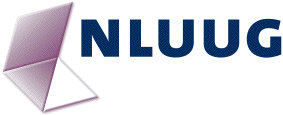 | ||
|
|
Keith Bergelt: Leveraging Community IP Strategies to Ensure Unrestricted InnovationOpen Invention Network AbstractInnovation, cooperation and the sharing of ideas are fundamental to the success of the open source community. Aggressive use of patents to restrict choice and artificially impair market forces is at odds with the very ideas behind open source. As several notable lawsuits have come to light in 2011 and 2012, patents have become a widely discussed topic within the open source community. However, just as open source developers team up to create innovative software, so too can collaboration across the open source community benefit and protect the openness of software systems. For instance, defensive patent pools leverage the patents of a few to ensure protection for the group against patent trolls and other aggressors. The core benefit for participants in these pools derives from the fact that a company or member invests a certain amount but receives access to and protection from a vast array of IP. There are many different types of defensive patent pools, determined by industry factors, the IP landscape, the goals of the participants, and other considerations. Open Invention Network (OIN) has seen its number of corporate licensees grow to over 400 since it was launched in 2005 by IBM, NEC, Novell, Philips, Red Hat and Sony. The organization now counts HTC, Cisco, Facebook, and Google among its members. This considerable rise in members of OIN, from both large and small organizations, demonstrates the enormous importance these companies place on the freedom to invent, innovate and operate. Software like KVM, Git, OpenJDK and Webkit has recently been included in OIN's updated Linux System definition, the list of software packages that define where the OIN community will cross license and not pursue patent infringement claims against one another. Through the update, the first time this has occurred since 2005, OIN expanded the list by more than 700 new software packages. In addition, OIN enhanced the coverage of innovations in previously identified software packages by upgrading the list to more current versions of those packages. In total, the size of the Linux System definition will very nearly double. As Linux has become more integrated and prolific in the technology used by people every day, its relevance as a medium for creativity and innovation is vital. The constant barrage of lawsuits threatens to undermine or slow the progress that is being made. In other fields, such as the arts or architecture, companies encourage innovation and build from the invention and breakthroughs of others, even competitors. Those that do not collaborate become isolated and increasingly stale. Open source software can and is enhancing collaboration, where companies and individuals work together to make important advances. OIN and its community members have made the choice to foster collaboration, to support the freedom to innovate, and to ensure that advances in software will continue at a rapid pace. Biography
Keith Bergelt is the Chief Executive Officer of Open Invention Network (OIN), the collaborative enterprise that enables innovation in open source and an increasingly vibrant ecosystem around Linux. In this capacity he is directly responsible for enabling, influencing and defending the integrity of the Linux ecosystem. Central to the achievement of his goals is the acquisition and transfer of patent rights designed to permit members of the Linux ecosystem (like KVM, Git, OpenJDK and WebKit) to operate free of the threat of assertion and litigation from those whose business models are antithetical to innovation and global economic growth in information technology and computing. Prior to joining the Open Invention Network, Mr. Bergelt served as president and CEO of two hedge funds – Paradox Capital and IPI – formed to unlock the considerable asset value of patents, trademarks and copyrights in middle market companies. During Mr. Bergelt's stewardship of these activities, he raised over $300 million while financing IP-centric portfolio companies of leading private equity firms. Previously, he was Motorola's director of Technology Strategy. |
|
| 2025-10-09 | ||
|
Association NLUUG | ||